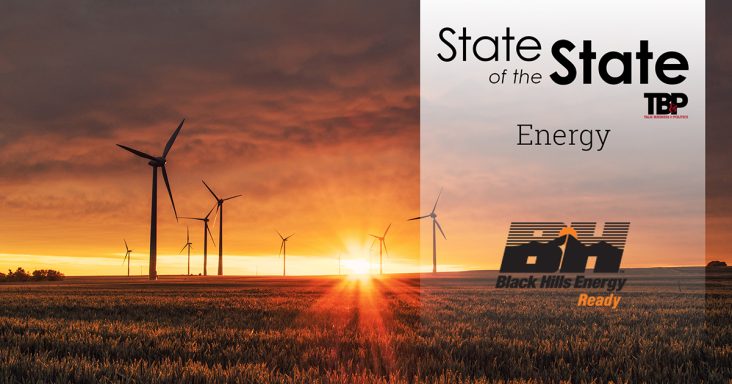Energy leaders say more supply, stable policy needed for lower costs
by April 10, 2022 8:16 pm 1,028 views

As inflation eats into family and business budgets, energy is one component of the economy that has been driving higher prices. Two energy leaders – Chad Kinsley, VP of operations for Black Hills Energy, and Lauren Waldrip, executive director of the Arkansas Advanced Energy Association, shared their perspectives in Talk Business & Politics’ latest State of the State report on energy.
Kinsley, whose company provides natural gas across north Arkansas, said the COVID-19 pandemic disrupted the supply and demand balance that had kept energy prices stable and low.
“We’re seeing inflation across all aspects of the economy and natural gas commodity prices, like you mentioned, certainly are no exception. Unfortunately, that’s impacting our customer’s bills and kind of a short answer is, it’s supply and demand in the marketplace,” Kinsley said. “If you look back historically over the past decade, the country has really benefited from historically low natural gas prices, largely driven by advances in production technology. So supply has really exceeded demand. We became energy independent as a country, and that shifted over the past couple of years, really starting with the pandemic, where we saw energy demand contract pretty significantly. People stopped traveling or reduced the amount of travel and in response, the industry reduced spending and production levels. Those levels just haven’t returned as quickly as demand has. And so we’ve definitely seen that supply and demand balance shift over the past couple of years. And that’s largely, at least in the natural gas space, is what’s driving the increased cost.”
Waldrip, whose association represents renewable energy startups and diversified energy companies, contends the shortage in the supply chain poses a national security risk.
“I would say this energy conversation is concerning just from a national security issue. I think similar to the food that we require as a nation, anytime we’re dependent on importing these necessities from other countries, that puts us in an exposed position. So the more control we have over our energy sources, the better,” Waldrip said. “The good thing about renewable energy is that it diversifies our production methods. And so it localizes that generation in a way that can be less dependent and vulnerable, more resilient, than sometimes traditional energy production. And so that’s just one way that we can insulate ourselves, pun intended, from some of these rising energy costs.”
Waldrip and Kinsley agree that renewables, while growing, won’t replace traditional energy production anytime soon. However, to keep the sector moving in the right direction, state and federal policies must remain consistent.
“As a utility, I’d really advocate that it’s important for us to have consistent, predictable energy policy. As utilities, we’re making very long-term decisions when we’re looking at generation assets and they’re multi-million, sometimes billion dollar type investments, and so having stable, predictable policy [is crucial],” Kinsley said.
“To Chad’s point, stable and reliable policy is crucial in this environment, so that folks can invest in it and they can participate in it,” Waldrip said. “From a renewable standpoint, Arkansas has some of the best net metering laws in the nation. It’s not the government’s place to tell people where to source things. And our legislature has made very clear that they want this to be a good place to do business in this industry.”
You can watch their full interview in the video below.
